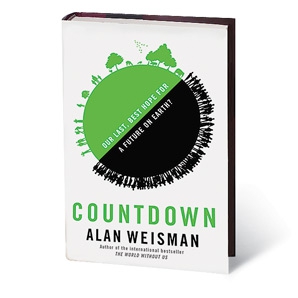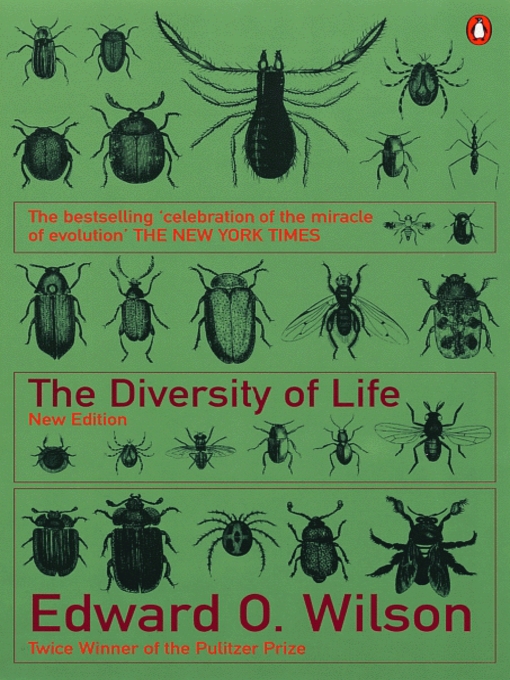Category: conservation (Page 3 of 4)

Could technology be the beginning of the end for human civilization?
Possibility the entire infrastructure of modern civilization relies on manipulations of the electron through complex technologies. A wise idea would be to prepare the Earth for at least one year without a single amp of electricity. The big question is: How can we support all current human life with no electricity? If that one year began today the result would be anarchy, downfall of civilization, and loss of life. Now that we are in a position to preemptively avoid such a disaster, we need to install a “backup generator.” How or what is to be done? Great minds working together should be able to come up with a solution.
To emphasize this potential danger, I propose a book. This book would actually consist of at least one year of journal entries. These entries could be posted through a blog. And for one year I would post the life of a character who is living through this theoretical world of no electricity and no technology. What if I could find another author who would detailed the life of another person in another culture with the same global events. Two stories, two perspectives, same events.
In this book, the failure of technology would be caused by an intelligent and hostile alien race. They would have mastered the human race’s social and biological characteristics. Through this mastery they would be able to target our tools and electricity but not our electrical nerve impulses. Human civilization and its survival is entirely rooted in the manipulation of the electron through various technological tools. The resulting unrest caused by anarchy would deflate the “artificially” inflated human population. This can be seen dramatically through an analogy with Native Americans, whose populations and societies suffered from disease, thus making invasion by outsiders easier.
This is a very rough draft of my entire idea. Consider Solar Storms.
This post is a sequel to a previous story.
Warren, Ben, David, and Taylor meet again. This time they are violently coughing.
Ben: Why is the air is so dirty?
Taylor: Yes, I can hardly see more than a mile through the pollution.
David: It’s sad that we have done this to our once beautiful city. Will we ever be able to clean the air?
Ben: Not sure, perhaps Warren has another great idea?
Warren: I have an idea, but I am not sure if it will work. More of hypothesis really…
David: Any idea is a good idea in these depressing times.
Taylor: Please tell us your idea Warren.
Warren: Well, it’s similar to that idea I had along time ago about pieces of the paper.
Ben: Yes! How could we forget, that idea made us very rich!
David: Make pieces of paper to clean air?
Taylor: I don’t see the point yet, but please continue.
Warren: Just think of these figures — the average human lives 67 years; this person will inhale about 11,000 to 14,000 liters of air each day; thus, in a life-time a person will inhale about 6.5 billion liters of air.
David: Wow! that seems like an enormous quantity of air.
Warren: It’s about the volume of 2,600 Olympic-size swimming pools.
Taylor: Remarkable when you put it into perspective.
Ben: What do these figures mean?
Warren: Ah, well they provide an upper estimate on the volume of air a person needs to live for a life-time. Now, we can place a value on clean-air.
Ben: With pieces of paper?
Warren: Yes, exactly.
David: Each piece of paper could be worth a life-time of clean air?
Taylor: Interesting…
Warren: Sounds like a good idea, right?
Ben: I think so, but there are some issues with this idea.
Warren: Please explain.
Ben: Well, what if a person does not own one of these pieces of paper? Do they not get to breathe? It does not seem possible to force people to buy these papers.
Warren: I would never allow that to happen! Rather, these pieces of paper are only theoretical rights to clean air. Much like the idea of paper representing the value of a company. The paper only obtains value through trading in a market.
David: I see! Through the complex interaction of market agents we will be able to establish the value of clean air.
Taylor: Not to mention the money we will intially raise by selling these pieces of paper.
Ben: Just like Warren’s other idea!
David: Ironically, people would expect the value to increase as pollution gets worse.
Warren: And, as the value increases, a larger amount of money can be raised by additional issuance of these papers. With this money we could develop sophisticated clean air technologies.
David: If the technologies work then the value of the papers should decrease.
Warren: True.
Ben: I like the idea. But I feel it would not work. An international organization would have to be responsible for issuing these pieces of paper; the organization’s sole purpose would be to clean and reduce pollution. And, as we know from history, corruption is always a problem.
Taylor: I agree. If the people running the organization don’t spend the money properly, the whole idea will crumble.
Warren: Well, like I said before, I am not sure if the idea will work.
David: I think it’s at least worth a try.
Ben: Agreed!
Taylor: So… how do we get this idea off the ground?

Edward O. Wilson does a great job exploring the wonderful diversity on Earth in his book The Diversity of Life. If Earth’s biosphere is to continue supporting the conditions for life, then diversity must be conserved and protected. Diversity provides the necessary adaptive power to withstand natural disasters. Wilson writes many great books and this is one of them.

I have had issues with dry skin on my arms and I wanted to find a way to fix the problem. When I tried Dr. Bronner’s Peppermint Soap I found that it did help my dry skin. Bathing with it in the winter will remove or at least help get rid of dry skin. And, with every purchase you are helping the environment. The soap is 100% organically grown. I would recommend buying the largest volume for cost savings.






